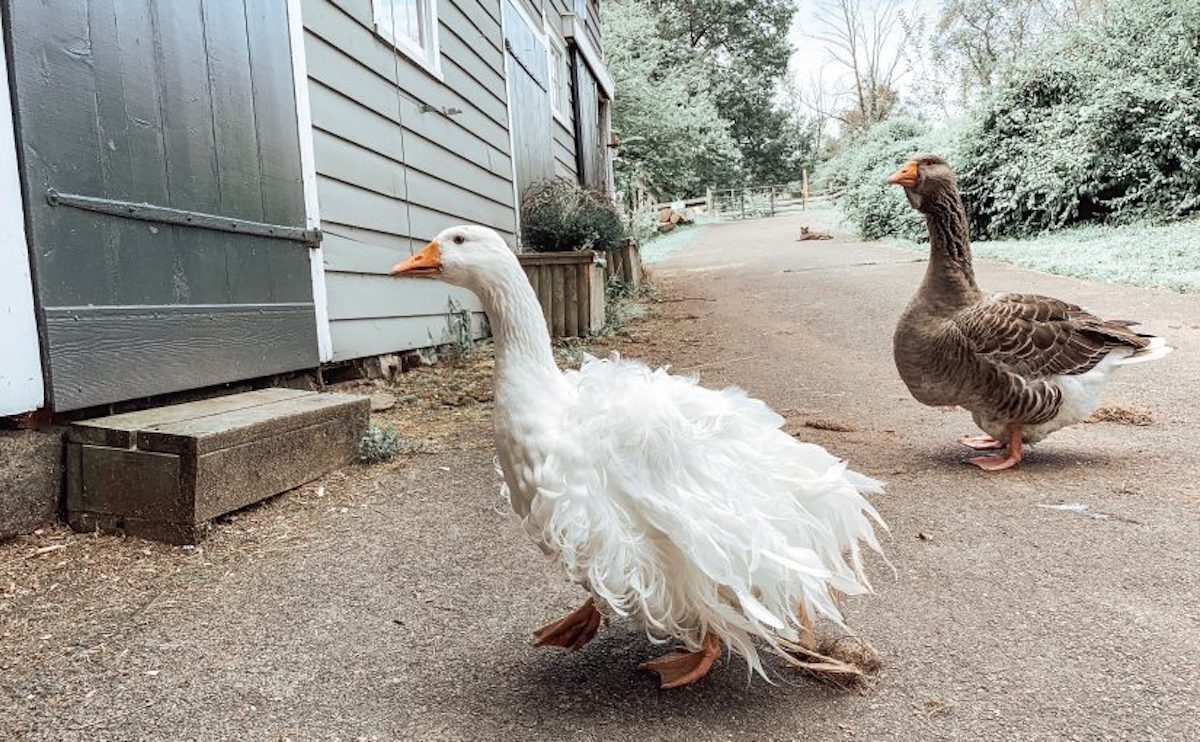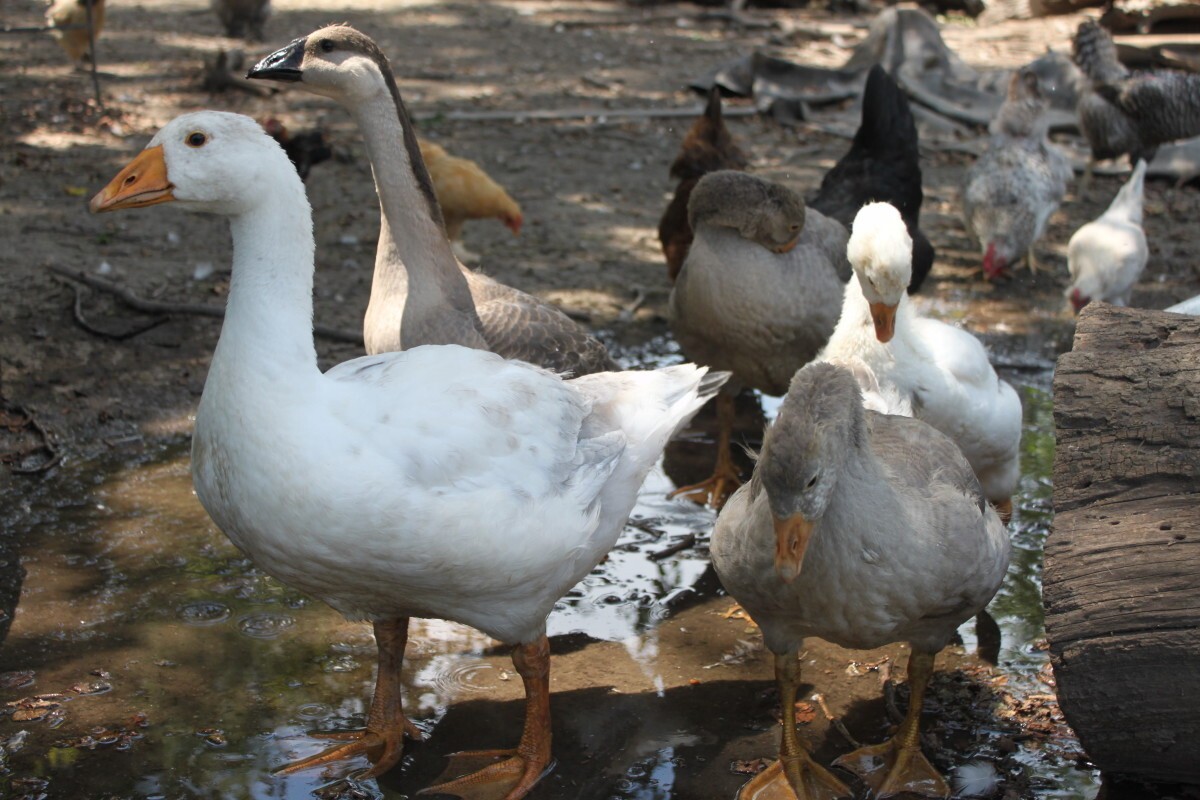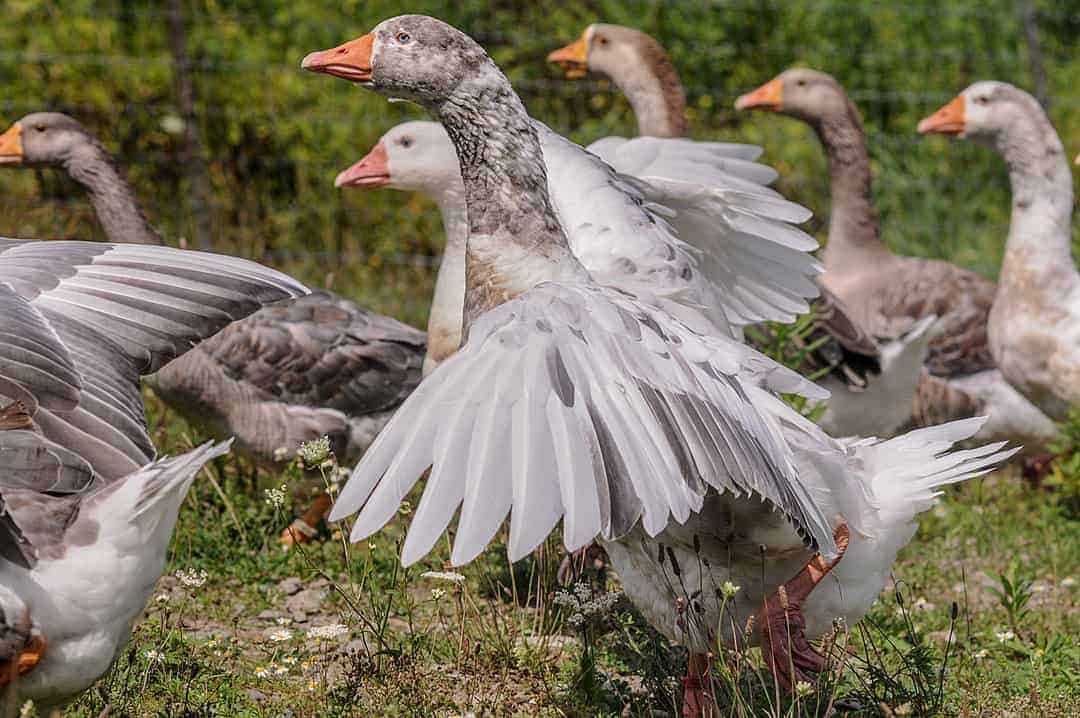Geese are fascinating creatures known for their strong social bonds, intelligence, and distinctive behavior. Whether you’re a bird enthusiast or considering raising geese as pets, understanding their nature and behavior is essential. This comprehensive guide explores whether geese are friendly and provides insights into their behavior and care requirements.
The Nature of Geese
Social Structure
Geese are highly social animals, forming strong family units and flocks. They communicate through a variety of vocalizations and body language, which play a crucial role in their interactions.
Family Bonds
– Mating: Geese typically form monogamous pairs, often staying together for life.
– Parenting: Both parents are involved in raising the goslings, teaching them essential survival skills.
Intelligence and Communication
Geese are known for their intelligence, which is evident in their problem-solving abilities and complex communication.
Vocalizations
– Calls: Geese use different calls to signal alarm, attract mates, and communicate with their flock.
– Body Language: Wing flapping, head bobbing, and other gestures are part of their communication repertoire.
Are Geese Friendly?

Factors Influencing Friendliness
The friendliness of geese can vary widely based on several factors, including their upbringing, environment, and individual temperament.
Upbringing
– Hand-Raised Geese: Geese that are hand-raised from a young age tend to be more comfortable around humans and can be quite friendly.
– Wild Geese: Wild geese are generally more cautious and may exhibit aggressive behavior if they feel threatened.
Environment
– Safe Habitat: A secure and enriched environment can promote friendly behavior in geese.
– Regular Interaction: Geese that regularly interact with humans in a positive manner are more likely to be friendly.
Behavioral Traits
Geese exhibit a range of behaviors that can be interpreted as friendly or aggressive.
Protective Nature
Geese are naturally protective of their territory and young. While this can sometimes be perceived as aggression, it is a sign of their strong protective instincts.
Curiosity
Geese are curious creatures and may approach humans out of interest. This curiosity can be a sign of friendliness, especially if they are accustomed to positive interactions with people.
How to Raise Geese as Pets

Housing and Environment
Providing a suitable environment is crucial for raising happy and healthy geese.
Shelter
– Space: Geese need ample space to roam and forage. A spacious yard or pasture is ideal.
– Protection: Ensure the area is secure from predators and provides shelter from extreme weather conditions.
Water Access
– Swimming: Geese enjoy swimming, so access to a pond or pool is beneficial.
– Drinking: Fresh, clean water should always be available for drinking.
Feeding and Nutrition
Proper nutrition is essential for the well-being of geese.
Diet
– Foraging: Geese are natural foragers, thriving on a diet of grasses, grains, and plants.
– Supplemental Feed: In addition to foraging, provide a balanced poultry feed to ensure they receive all necessary nutrients.
Health Care
Regular health care and monitoring are important to keep geese healthy.
Veterinary Care
– Check-Ups: Schedule regular check-ups with a veterinarian experienced with poultry.
– Vaccinations: Ensure geese are vaccinated against common diseases.
Hygiene
– Clean Environment: Maintain a clean living area to prevent the spread of diseases.
– Water Hygiene: Regularly clean water sources to prevent contamination.
Interacting with Geese

Building Trust
Building a trusting relationship with geese requires patience and consistency.
Gentle Handling
– Early Interaction: Start handling goslings gently from a young age to build trust.
– Positive Reinforcement: Use treats and positive reinforcement to encourage friendly behavior.
Understanding Behavior
Understanding and respecting geese’s behavior is key to harmonious interactions.
Recognizing Aggression
– Warning Signs: Be aware of warning signs such as hissing, head lowering, and wing spreading, which indicate a goose is feeling threatened.
– Respecting Space: Give geese space when they display signs of aggression to avoid escalating the situation.
Conclusion
Geese can be friendly and rewarding pets when raised and handled properly. Their social nature, intelligence, and protective instincts make them fascinating companions. By providing a suitable environment, proper nutrition, and regular interaction, you can enjoy a positive relationship with your geese. Understanding their behavior and needs is essential to fostering a friendly and harmonious bond with these remarkable birds.

